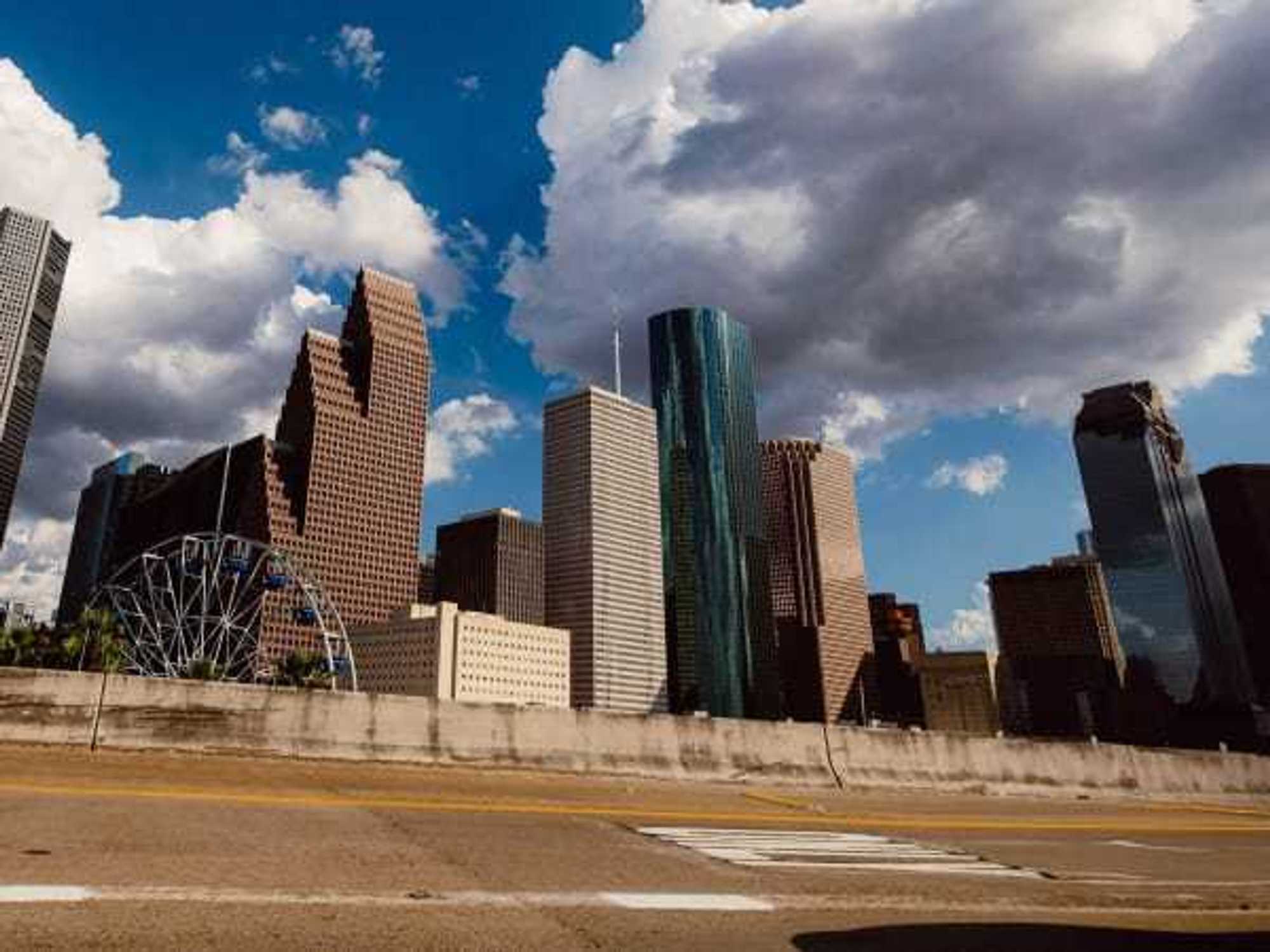Brilliant Lecture Series
Mikhail Gorbachev defends Russia and disses Romney in Houston appearance
- Mikhail Gorbachev spoke before a packed house Thursday evening, discussing theend of the Cold War and the future of foreign relations.Photo by Tyler Rudick
- Gorbachev spoke with reporters before his speech, touching upon a range oftopics from the environment to globalism that he would flesh out later in thenight.Photo by Tyler Rudick
- A short video segment showed archival footage from the leader's time as thefinal sitting Soviet president.Photo by Tyler Rudick
- Lynn Wyatt, who chairs the Brilliant Lecture Series, introduced the statesman.Photo by Tyler Rudick
Former Soviet president and Nobel laureate Mikhail Gorbachev spoke to a packed house at the Wortham Center on Thursday evening, offering up an hour-long talk covering the final years of the Cold War and the strained U.S.-Russian relationship that followed.
Part of the Brilliant Lecture Series, the legendary statesman told the audience he was no stranger to Houston — home, of course, to president George H.W. Bush, whom he called one of his "best partners" in bringing down the Iron Curtain.
The two leaders have remained close since departing office and rekindled their friendship Thursday afternoon at a private lunch with Barbara Bush, James Baker III and Gorbachev's daughter.
"When I heard a remark during this campaign that [the former] Soviet Union is the num ber one problem for American foreign policy, I was amazed," Gorbachev said.
"I am over 80 years old and my friend George Bush will be celebrating his 90th birthday," he said through a translator.
"But we will continue to stand by what we did in those years and will continue to insist that these efforts we started together and continued … at the summit meeting in Malta where we said our two nations no longer regard each other as enemies. I very much want our two governments to stand by that important statement."
On that note, Gorbachev turned to the 2012 presidential elections and Mitt Romney's continued finger-pointing at Russia, which the candidate labeled "our number one geopolitical foe" during the primary race.
"When I heard a remark during this campaign that [the former] Soviet Union is the number one problem for American foreign policy, I was amazed," the leader explained. "I hope that it was just that the person misspoke. But in certain matters, one should not misspeak."
While the crowd erupted in laughter and applause, Gorbachev appeared dead serious.
Gorby on the West
Looking back at the turmoil of the last century, he noted that the First and Second World Wars were not inevitable conflicts, but were the results of prejudicial mistakes and "erroneous political decisions made by national leaders." The 21st century, Gorbachev warned, is facing a similar degree of worldwide economic and political tension.
"The end of the Cold War gave rise to many hopes. There were real possibilities of moving on to a kind of world order that was more peaceful, more just and more humane. But those hopes were squandered as Western powers took advantage of the breakup of the Soviet Union in order to present the end of the Cold War as their victory."
"The economic model that prevailed was based on super-profits, supe r-consumption and environmental irresponsibility that exaggerates social inequality and human injustice."
The global economic model that emerged in the post-Soviet 1990s would lead to the collapse of the world economy of 2008, he suggested.
"[The Western powers] resumed a policy of protecting, above all, their special interests. The economic model that prevailed was based on super-profits, super-consumption and environmental irresponsibility that exaggerates social inequality and human injustice. … It's a model of growth that undermines trust."
And trust, he said, is the cornerstone of effective political compromise and negotiation — ingredients in short supply in today's global arena, not to mention in the U.S.
At the end of his speech Gorbachev turned his attention to current geopolitical events, namely the war in Syria and Russia's tacit support for the Assad regime.
"Syria is in the middle of a large scale civil war, so what should the international community do?" he asked. "I believe that under no circumstances should the international community intervene in a situation that's already so bad. Under no circumstances should there be military interference. We should learn the lessons of Iraq. … Rather than weapons, we need diplomacy."




